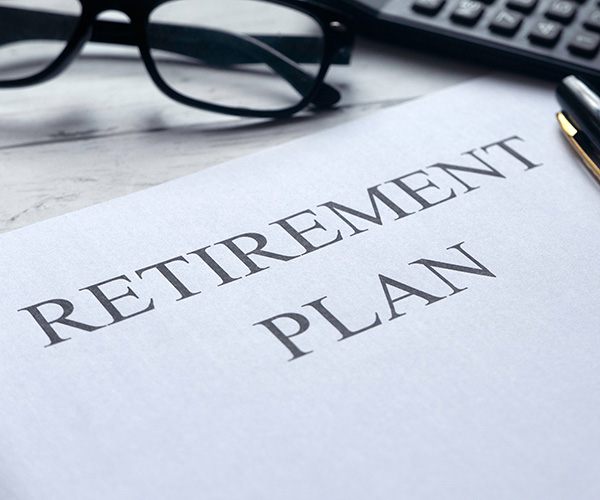Five Things That Can Fill the Hole in Your Retirement Plan. By: Mark Heinrich

Are you the one who saved and invested for your retirement and spent 40 or even 60 hours per week for more than 50 years? Do you want to kick back, play bridge, go fishing or golfing, and enjoy your time doing your favorite activities? Are you the one thinking you no longer need to answer to the boss? While these questions were hitting your mind, the coronavirus pandemic clobbered the economy. The stock market starts declining, the economy begins plunging, and your returns disappear. Now, what would you do? We have done some research and have come up with five things that you can do for a secure retirement.
- Assess the risk around you: Developing situation awareness is the key to securing your retirement in this crucial situation. This phrase comes from military aviation and is often defined as the assessment of environmental elements and events happening around you, the results of conditions around you, and the impact of a particular situation on your future status. This phrase was considered essential for pilots who wanted to survive while dealing with enemy aircraft.
From an investor’s point of view, this phrase means assessing the risks around you and understanding the potential outcomes of a particular situation on your investments. Check things that happened in history. Prioritize the critical inputs. Remove the redundant information and focus only on essential and informative sources. The most important thing is to analyze things that are in your control and that are not. - Develop a “decumulation” plan: How many assets will you draw down each year? Well, this is a tough question that thoroughly depends on so many unknown factors like inflation, rate of interest, yields, financial needs, and sometimes longevity. William Sharpe, the winner of the Nobel Prize in 1990, received the award for his work on a model that is useful while making investment decisions, and he mentioned that using savings in retirement is the hardest problem while managing finances.
The best way to manage this is to come up with a financial plan that helps you to deal with unknown factors and focus only on your goals.
Every plan will help you understand your spending each year. If you do not come up with this plan, you are likely to spend more, and your financial situation is expected to worsen. It is always a better idea to start from a position where you have detailed knowledge instead of no experience to retire stress-free. - You must try to understand risks associated with your fixed income: Some investors find it tempting to spread between the highest- and lowest-quality bonds. Everyone should take a lesson from the 2008-09 crisis that teaches us chasing yield is an expensive and foolish proposal to make. You should never buy the lowest-quality bonds just because the Federal Reserve is buying them. You should invest some time and think about your debt. Bonds help you retire peacefully. They do produce income. The most important thing is they should promise the return of capital and not return on equity.
You should understand and make your fixed income a vital part of your diversified portfolio. It is better to stick with investment-grade bonds. No one can go wrong with high-quality corporate debt. Do you know, Treasury Inflation-Protected Securities (TIPS) is the best one against inflation? There are so many options available under the municipal bond markets, especially general obligation bonds. There may not be many state defaults, but you should be ready to see some scary moments from places like New Jersey and Illinois. If you are close to your retirement, you should avoid those places. - High yield, or junk, debt may look attractive. But you have to be careful. In the past few weeks, the most significant high-yield exchange-traded funds, including iShares iBoxx High Yield Corporate Bond ETF and the SPDR Bloomberg Barclays High Yield Bond ETF dropped by 22% and 23%, respectively, last month and are still dropping more than 10%. Individuals who wanted to rebalance then are really disappointed.
Replace individual stock holdings and concentrate on equities: The apparent reason for this transition is that equities provide higher than expected returns, and bonds are riskier. That means there is a possibility that you may not get the returns you hoped for and end up disturbing your stomach along the way. But they are expected to rise in the long run; no one can afford to live without them. - The solution for this problem is to replace all stock holdings, expensive funds, and alternative investments with low-cost index funds. For individuals who are in or close to retirement, the risk-taking possibility is too high. Just like Apple and Google and Amazon have dropped as much as 80% at various times, like junk bonds, you do not need to invest in them when they are on the lower side.
Manage your money as your mindset. This may look much trickier, especially during times of ups and downs in the markets. The best way to do this is to manage your money as per your mindset. We had heard stories of recent retirees who were paralyzed when they were asked to spend their savings. Surprisingly true, but under-spending can be a bigger issue for retirees who are living beyond their means. Under these circumstances, software programs can help. Every financial adviser uses software to find how much an individual can spend each year. There are online retirement calculators that do a similar job.
You spent decades of your life in a job, so you need to work on your return to enjoy your retirement to the fullest. Fill your plan right, and your retirement will be well worth it.
This article does not point to the opinion of Bloomberg LP and its owners.
Barry Ritholtz, a Bloomberg Opinion columnist and the chairman and the chief investment officer of Ritholtz Wealth Management, was chief market strategist at Maxim Group. He is the author of Bailout Nation.







